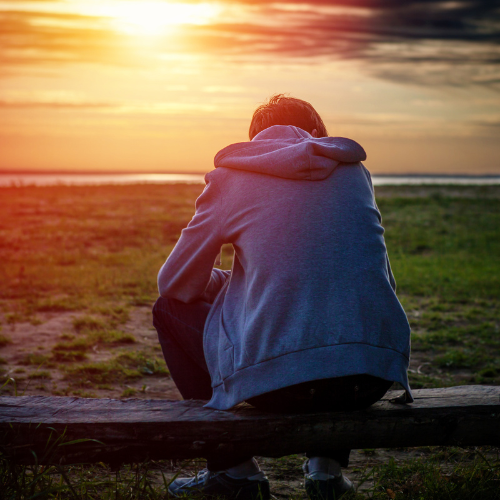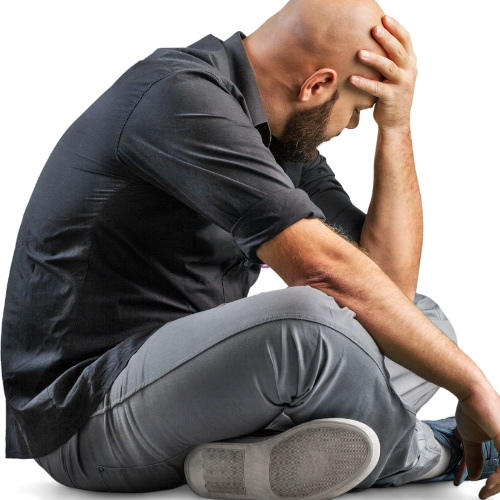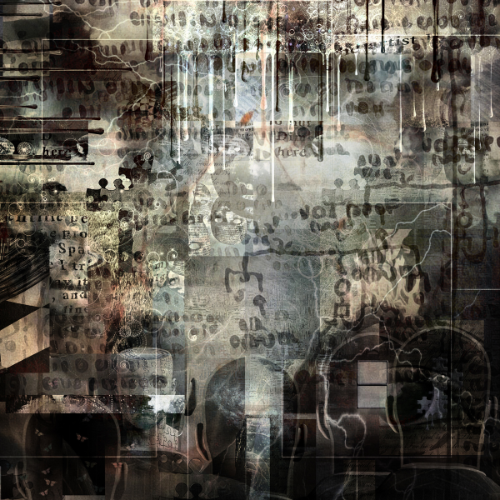Domestic and family violence is often perceived as a women’s issue, but men can also be victims. In Australia, statistics show that a significant number of men experience domestic abuse. However, societal stigmas and stereotypes can make it difficult for male victims to seek help. This article aims to provide practical steps and strategies for men to escape and cope with domestic and family violence. Understanding the signs, knowing where to find support, and learning how to cope are essential for men to find safety and healing.
Understanding Domestic and Family Violence Against Men
Domestic and family violence includes any behaviour intended to gain power and control over a partner or family member. This can involve physical, emotional, psychological, sexual, or economic abuse. Recognizing these forms of abuse is crucial for male victims to understand their situation and seek help
Types of Abuse
- Physical Abuse: Includes hitting, slapping, punching, kicking, and using weapons to harm.
- Emotional and Psychological Abuse: Involves verbal abuse, threats, intimidation, humiliation, and controlling behaviour.
- Sexual Abuse: Non-consensual sexual acts, coercion, and any behaviour violating the victim’s sexual autonomy.
- Economic Abuse: Controlling the victim’s access to financial resources, preventing them from working, or stealing their money.
- Technological Abuse: Using technology to stalk, harass, or control the victim, such as monitoring online activities or using GPS tracking.
Australian Statistics on Male Victims of Domestic Violence
According to the Australian Bureau of Statistics (ABS), domestic violence affects a significant number of men in Australia. Here are some key findings:
– In 2016, approximately one in six men (16%) had experienced physical or sexual violence by a current or former partner since the age of 15.
– One in 20 men (5%) reported experiencing emotional abuse by a partner in the previous 12 months.
– Men are less likely to report domestic violence compared to women, often due to societal stigma and fear of not being believed.
These statistics highlight the importance of acknowledging male victims and providing them with the support they need.
Recognizing the Signs of Abuse
Understanding the signs of abuse is the first step towards escaping and coping with the situation. Here are common indicators of domestic and family violence:
Behavioural Signs
Isolation:
The victim may become increasingly isolated from friends, family, and social activities at the abuser’s insistence.
Low Self-Esteem:
Exhibiting low self-worth and frequently apologizing or making excuses for the abuser’s behaviour.
Fearfulness:
Appearing anxious, fearful, or overly cautious, especially in the presence of the abuser.
Changes in Behaviour:
Sudden changes in behaviour, such as withdrawal, depression, or submissiveness.
Reluctance to Talk:
Avoiding discussions about their relationship or becoming defensive when questioned about their partner.
Physical Signs
Unexplained Injuries:
Frequent injuries with vague or implausible explanations, such as bruises, cuts, or burns.
Frequent Absences:
Missing work, social engagements, or family gatherings without reasonable explanations.
Changes in Appearance:
Drastic changes in appearance, such as wearing clothing to cover injuries or appearing dishevelled.
Psychological Signs
Depression and Anxiety:
High levels of stress, anxiety, or depression are common among abuse victims.
Hypervigilance:
Being constantly on edge, nervous, or overly alert to their surroundings.
Substance Abuse:
Increased use of alcohol or drugs as a coping mechanism.
Steps for Men to Escape Domestic Violence
Escaping an abusive situation requires careful planning and support. Here are practical steps for men to find a way out:
Develop a Safety Plan

Identify Safe Places:
Determine safe places you can go in case of an emergency, such as a friend’s house, family member’s home, or a shelter.

Prepare an Emergency Bag:
Pack an emergency bag with essentials like clothing, identification, money, and important documents. Keep it in a safe and accessible place.

Establish a Code Word:
Create a code word with trusted friends or family members to signal when you need help.
Seek Support
Reach Out to Trusted Individuals:
Share your situation with trusted friends, family members, or colleagues who can provide support and assistance.
Contact Support Services:
Utilize local support services, such as hotlines, shelters, and counselling services. In Australia, organizations like MensLine Australia offer confidential support for men experiencing domestic violence.
Legal Assistance:
Seek legal advice to understand your rights and options for protection, such as obtaining a restraining order.
Plan Your Escape
Choose the Right Time:
Plan your escape when the abuser is not present or less likely to notice your actions.
Avoid Confrontation:
Leave when it is safe to do so, avoiding any confrontation with the abuser.
Keep Your Plans Confidential:
Do not share your escape plans with anyone who might inform the abuser.
Coping Strategies for Male Victims
Coping with the aftermath of domestic violence can be challenging. Here are strategies to help male victims find healing and rebuild their lives:
Emotional and Psychological Support
- Counselling and Therapy: Seek professional counselling or therapy to help process your experiences and develop coping strategies.
- Support Groups: Join support groups where you can connect with others who have had similar experiences.
- Mindfulness and Relaxation: Practice mindfulness, meditation, and relaxation techniques to manage stress and anxiety.
Rebuilding Self-Esteem
- Positive Affirmations: Use positive affirmations to rebuild your self-worth and confidence.
- Set Achievable Goals: Set small, achievable goals to regain a sense of control and accomplishment.
- Engage in Hobbies: Pursue hobbies and activities that bring you joy and fulfillment.
Physical Health
- Exercise: Regular physical activity can help reduce stress and improve your overall well-being.
- Healthy Diet: Maintain a balanced diet to support your physical and mental health.
- Medical Care: Address any physical injuries or health issues caused by the abuse. Seek medical care when needed.
Social Support
- Reconnect with Friends and Family: Rebuild relationships with friends and family members who can offer support and companionship.
- Community Involvement: Engage in community activities and events to expand your social network.
- Avoid Isolation: Stay connected with others to prevent feelings of isolation and loneliness
Resources for Male Victims in Australia
Several organizations and services in Australia provide support for male victims of domestic and family violence. Here are some key resources:
MensLine Australia
MensLine Australia offers telephone and online counselling for men experiencing domestic violence. They provide confidential support, information, and referrals.
Contact: 1300 78 99 78
1800RESPECT
1800RESPECT is a national sexual assault, domestic and family violence counselling service. They offer confidential support and information for all victims of domestic violence, including men.
Contact: 1800 737 732
Men's Referral Service
The Men’s Referral Service provides support for men who are victims of domestic violence or who are concerned about their own behaviour. They offer telephone counselling and referrals to local services.
Contact: 1300 766 491
Lifeline Australia
Lifeline offers 24/7 crisis support and suicide prevention services. They provide confidential counselling and support for anyone experiencing emotional distress, including male victims of domestic violence.
Contact: 13 11 14
Relationships Australia
Relationships Australia offers counselling, support, and resources for individuals and families affected by domestic violence. They provide services tailored to the needs of male victims.
Contact: 1300 364 277
Breaking the Stigma
One of the significant barriers for male victims of domestic violence is the stigma associated with seeking help. Breaking the stigma involves changing societal perceptions and encouraging men to speak out. Here are ways to contribute to this change:
Raise Awareness
- Public Campaigns: Support and participate in public awareness campaigns that highlight the issue of domestic violence against men.
- Share Stories: Encourage male survivors to share their stories to inspire others and break the silence.
- Education: Educate yourself and others about the prevalence and impact of domestic violence on men.
Supportive Environment
- Non-Judgmental Attitude: Approach male victims with empathy and without judgment. Understand that their experiences are valid and deserving of support.
- Inclusive Services: Advocate for inclusive services that recognize and address the needs of male victims.
- Promote Equality: Promote gender equality and challenge stereotypes that perpetuate the idea that men cannot be victims of domestic violence.
Men can and do experience domestic and family violence, and their experiences deserve recognition and support. By understanding the signs of abuse, developing a safety plan, seeking support, and utilizing coping strategies, male victims can find a way out of their situation and begin their healing journey. Breaking the stigma surrounding male victims is crucial in creating a supportive environment where all individuals can seek help without fear of judgment. In Australia, numerous resources are available to assist male victims, and raising awareness can contribute to positive change and empowerment. Remember, reaching out for help is a sign of strength, and support is available for those who need it.









